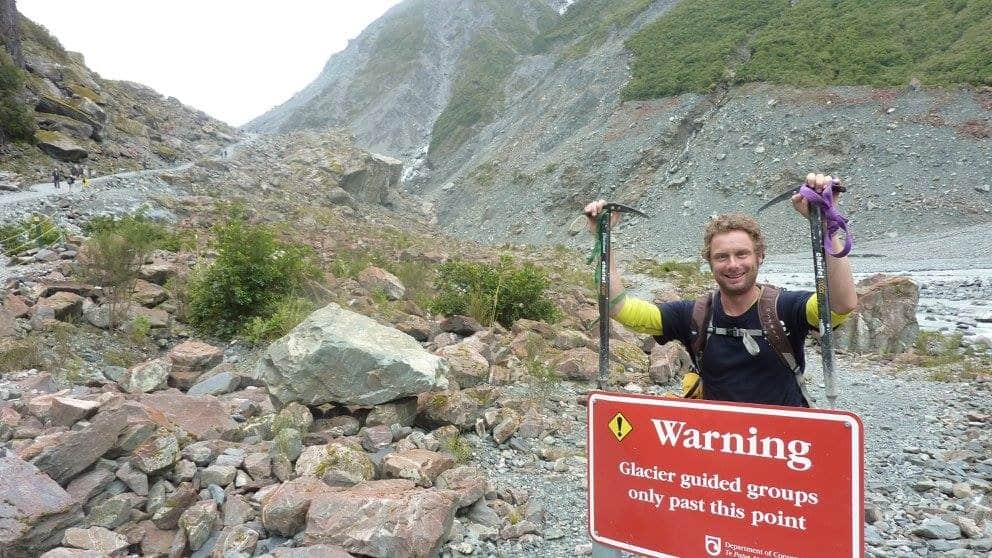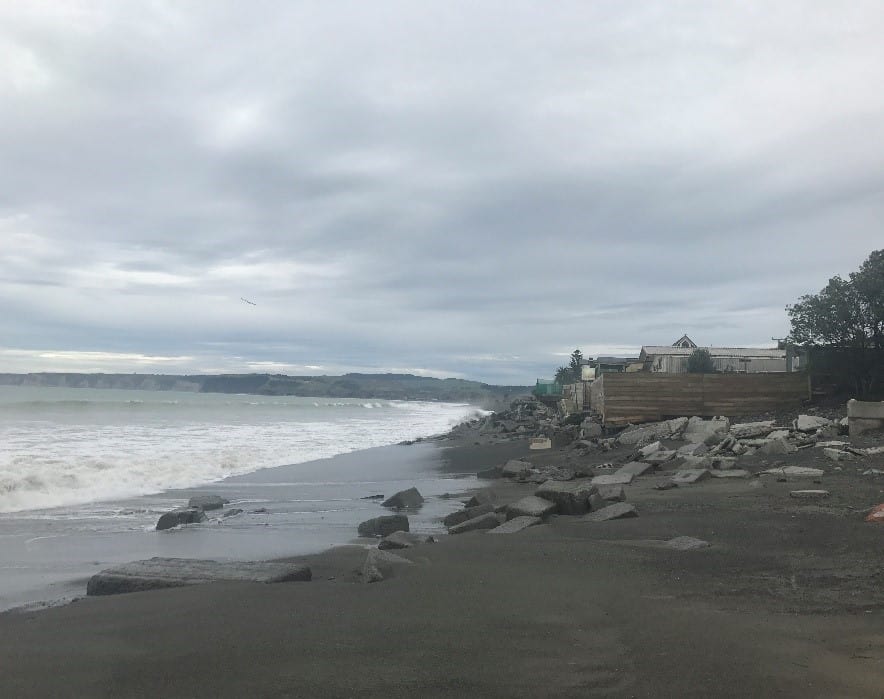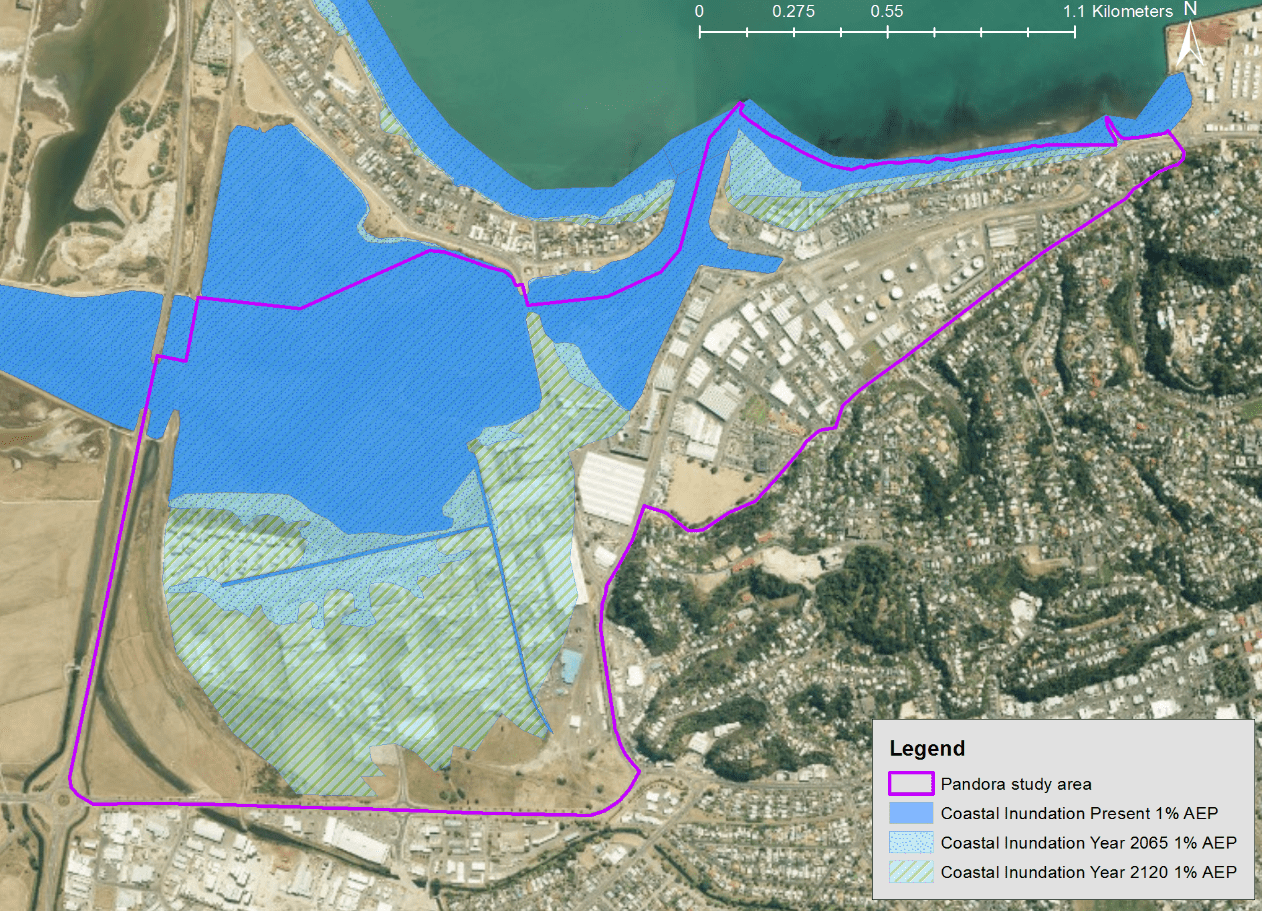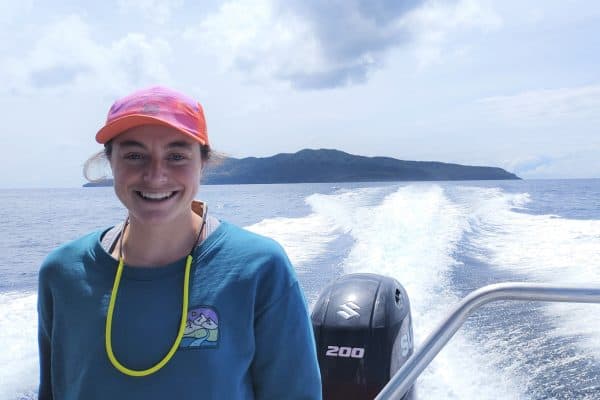Student Profile: Ashton Eaves
25/05/2018
Building resilience to climate change through modelling managed retreat in a coastal setting
About Ashton
Originally a Cantabrian, Ashton is now living on the West Coast of the South Island, where the nature is raw and the people are friendly. He studied at Lincoln University, where he completed a Master of Applied Science in Environmental Management; and the University of Canterbury where he graduated with Honours in Geography.

After his studies Ashton worked at the West Coast Regional Council in Environmental Science, specifically in hydrology and water quality. In this role he mastered building flood warning systems and processing the endless (and sometimes interrupted) streams of environmental data flowing in. Ashton became very familiar with ADCPs and the Sondes (instruments used to measure water quality, current and depth); although their relationships had its ups and downs, as is the case with fieldwork. After a few years he felt a need to be in more of a decision-making role in coastal management given the short-sighted structural interventions popping up without regard for hydrodynamics, ecosystem evolution, local surfers or ratepayers’ wallets. At about this time the PhD with the Resilience Challenge’sLiving at the Edgeteam surfaced, requiring some deep contemplation, a risk assessment and some uncertainty analysis.
Ashton’s project
The aim of Ashton’s thesis is to investigate how society can reduce the risk of coastal hazards and adapt to a changing climate. He’s doing this by exploring future scenarios through dynamic simulation modelling of economic systems under managed retreat (movement of structures and communities away from the coast to avoid coastal hazards exacerbated by climate change).

The work will help to enable better informed decision-making around future adaptation pathways by providing an assessment framework to analyse their economic impacts. It aims to discover economically feasible pathways toward managed retreat; although it does not intend to manipulate the direction of managed retreat, or propose an optimal solution. Economic modelling should aid the decision-making process in a supporting and interactive way to demonstrate the credibility of managed retreat as a resilient option to coastal hazards. This is a novel approach to utilising MERIT (Modelling the Economics of Resilient Infrastructure Tool) for slow creep hazards, alignment with the Dynamic Adaptative Policy Pathways (DAPP) process and to reduce uncertainty in decision-making through Robust Decision Making (RDM).
Ashton is enrolled at the University of Auckland and supervised by Professor Paul Kench, Dr Garry McDonald and Associate Professor Mark Dickson. The study area for his research is the coastal environment of Hawke’s Bay from Pandora to Clifton.

Next steps
This project will produce multiple planned, localised medium-term adaptation pathways toward managed retreat for vulnerable communities and infrastructure through an economic lens. This will provide clarity with regards to which policies are effective and which are not. The development of Integrated Assessment Models is key to inform the decision-making process and account for the diversity of knowledge and information.



